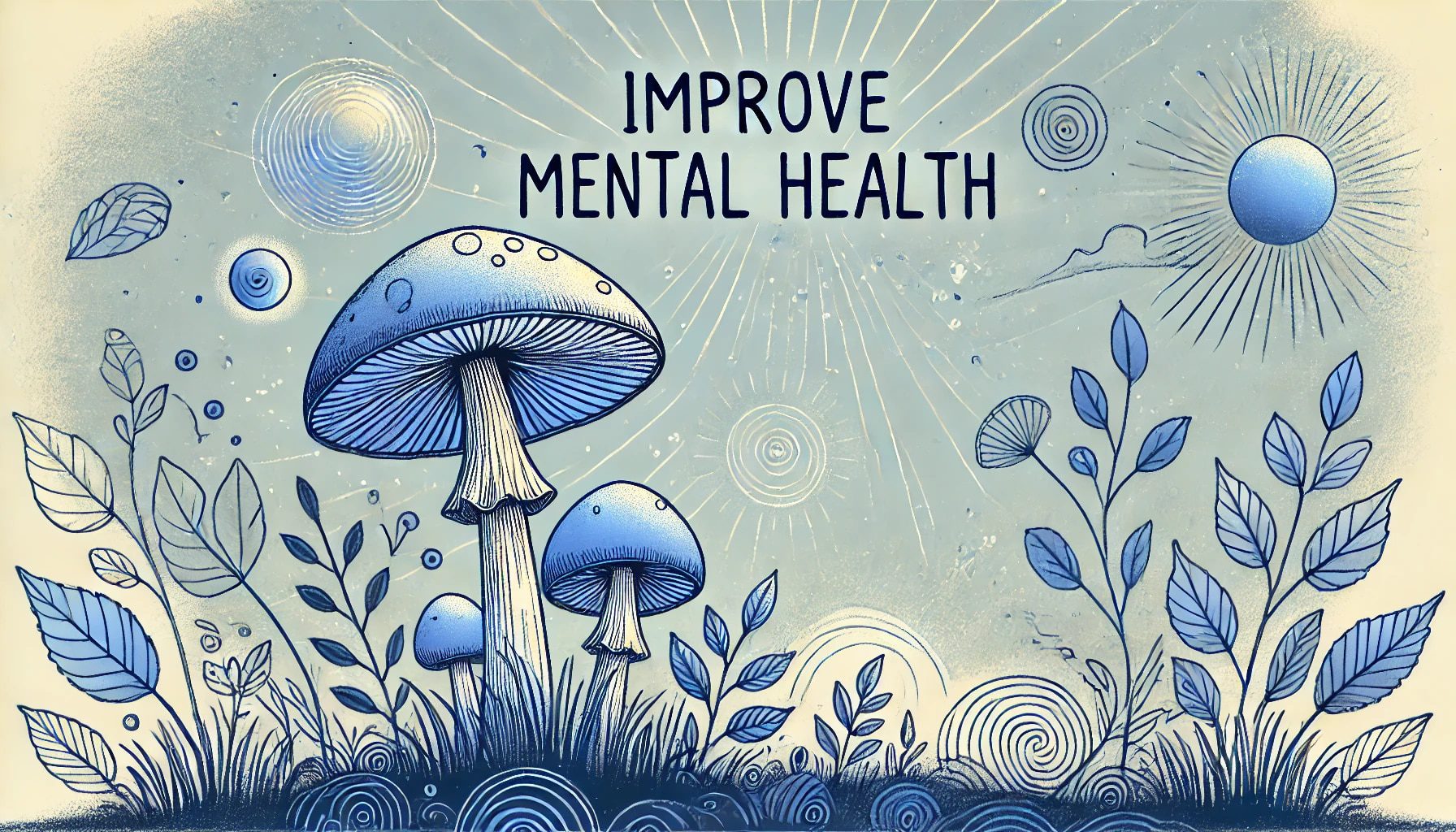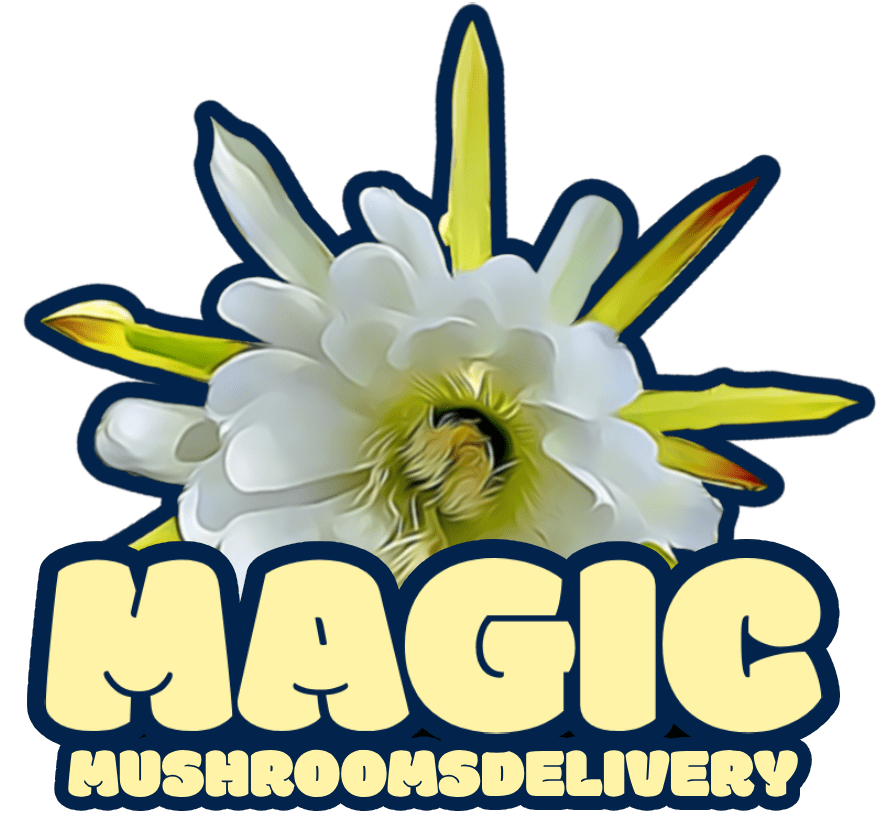

Improve Overall Mental Health Microdosing Magic Mushrooms
Achieving flawless mental wellness might be a dream for many of us, but the pursuit of balance and emotional resilience is more accessible than ever. In Canada, microdosing magic mushrooms has grown exponentially in popularity. It is praised for its potential to boost mental clarity. It can improve mood and help manage a range of mental health challenges like stress, anxiety, depression and addictions.. Unlike traditional psychedelic experiences, microdosing involves taking very small doses of psilocybin mushrooms. These “sub-perceptual” doses influence your mind without inducing a full-blown psychedelic trip.
This 2025 guide explores why Canadians are turning to microdosing. It explains the science behind it. The guide also covers the potential mental health benefits it offers. These benefits include managing anxiety, depression, PTSD, addiction, and improving motivation. You’ll also find an in-depth FAQ section, addressing some of the most common questions and concerns near the bottom.
What Are The Common Benefits of Microdosing Magic Mushrooms?
Microdosing psilocybin mushrooms offers various potential benefits, from improving mental health to enhancing creativity. Here’s a quick summary of the main takeaways from this guide:
- Reduces Anxiety: Microdosing can create a calming effect and reduce intrusive thoughts, which may help alleviate symptoms of anxiety.
- Improves Mood and Fights Depression: Microdosing’s influence on serotonin pathways could help lift mood, decrease depressive symptoms, and support emotional resilience (Healthline, NIDA).
- Supports PTSD Recovery: By enhancing neuroplasticity, microdosing may help people process traumatic memories. It can also reduce the intensity of stress responses (Sage Journals, University of South Florida).
- Helps Manage Addiction: Microdosing can disrupt addictive behaviors and patterns, potentially supporting recovery from substance use disorders (Johns Hopkins, PubMed).
- Boosts Motivation and Focus: Many people use microdosing to improve focus, boost productivity, and enhance creative thinking, especially in their professional and personal lives.
- Encourages Mental Flexibility: The impact of psilocybin on brain connectivity may allow for greater adaptability and problem-solving.
- Promotes Self-Reflection: Microdosing can foster introspection and personal growth, helping people explore their emotions and thought patterns.
Each of these benefits will be discussed in greater detail. This will help you understand how microdosing could fit into your mental wellness journey in 2025.
Understanding Microdosing: What, Why, and How?
Microdosing involves taking very small, controlled doses of psychedelics. These include psilocybin, which is the active ingredient in magic mushrooms. This is done to achieve subtle, non-psychoactive effects. These doses are often between 1/20 and 1/10 of a recreational dose. They are too low to cause full psychedelic experiences. However, they are believed to enhance creativity, focus, emotional resilience, and self-awareness.
Why do people microdose? For many, the benefits of microdosing are tied to personal well-being. While some use it to enhance creativity and productivity, others find that microdosing mushrooms helps them manage mental health symptoms or foster self-acceptance and inner peace.
Popular Substances and Dosages for Microdosing
In the microdosing community, psilocybin mushrooms and LSD are two of the most commonly used substances.
- Ketamine
- MDMA
- LSD
- Psilocybin Mushrooms
Precise measurement is key—particularly with LSD, where liquid dosing is often preferred for accuracy. With magic mushrooms, dried psilocybin mushrooms are typically weighed out in doses ranging from 0.1 to 0.3 grams.
The Top 5 Reasons Canadians Are Microdosing in 2025
- Reducing Anxiety Many people find microdosing psilocybin helps alleviate anxiety. By creating a sense of calm and reducing intrusive thoughts, microdosing allows individuals to feel more present and grounded. Recent Canadian studies have shown that people who microdose often report sustained reductions in anxiety symptoms. Benefits are seen across various age groups, genders, and backgrounds, underscoring the broad appeal and potential of this approach.
- Managing Depression and Improving Mood Research indicates that microdosing might be helpful in managing depression. Psilocybin interacts with serotonin receptors, which influence mood regulation (Canada.ca). Observational studies have shown that people who microdose report improved mood. They report increased motivation and reduced depressive symptoms. These effects last beyond the day of dosing. Many find it helpful to use magic mushrooms for depression, particularly for those who prefer alternative, natural treatments.
- Supporting PTSD Recovery PTSD is characterized by severe, persistent stress responses triggered by traumatic memories. Microdosing may promote “neuroplasticity,” or the brain’s ability to form new connections (NIDA, PubMed). This can help people with PTSD shift from a state of fear and anxiety toward a sense of safety and balance. Studies in animal models show that microdosing helps the brain process trauma. Anecdotal accounts from users suggest it also reduces the emotional weight of difficult memories.
- Combating Addiction and Substance Use Disorders A growing body of research suggests psilocybin could help manage addiction. Some studies indicate that psilocybin, even in low doses, may disrupt habits and addiction patterns by enhancing self-awareness and decreasing craving responses. Many people find that microdosing helps them reflect on their behaviors, reduce cravings, and make healthier choices.
- Boosting Motivation and Focus Productivity, focus, and motivation are common reasons for microdosing, particularly among creative professionals, entrepreneurs, and students. Many find that microdosing enhances their ability to concentrate. It taps into creative thought processes. This helps them feel more engaged with their work and inspired in their personal lives.
Common Questions About Microdosing Mushrooms
Is Microdosing Safe for Managing Anxiety?
Microdosing may offer some relief from anxiety, but the evidence is still emerging. By influencing serotonin pathways, psilocybin can create a calming effect, reduce obsessive thoughts, and foster a more relaxed state of mind. However, while many individuals report relief, the safety and effectiveness of microdosing for anxiety have not been conclusively proven in clinical trials.
Should you try it for anxiety?
If you’re considering microdosing to manage anxiety, approach it with caution. Remember that while microdosing can support mental health, it’s not a substitute for professional treatment. For those with severe anxiety, a combination of professional support and alternative therapies like microdosing (under guidance) might be beneficial. Be sure to consult a healthcare provider if you’re considering it as a therapeutic option.
Can Microdosing Replace Traditional Depression Treatments?
While microdosing may help some people manage depression, it’s not a one-size-fits-all solution or a direct replacement for traditional treatments. Some studies suggest that microdosing might support mood regulation by enhancing neuroplasticity, which can help individuals adopt new perspectives and habits. However, most research on psilocybin and depression involves high-dose, guided psychedelic experiences, not microdoses.
Is it safe to self-administer microdosing for depression?
If you’re interested in microdosing for depression, it’s best to speak with a healthcare provider, particularly if you are currently on medication. Combining microdosing with antidepressants or other medications can lead to unintended interactions.
How Does Microdosing Work in the Brain?
Psilocybin targets multiple receptors in the brain, with serotonin 2a receptors being the main focus. This interaction appears to decrease the “energy barriers” that normally restrict communication between different brain regions. By making it easier for the brain to shift between states, microdosing may promote mental flexibility and adaptability—qualities that can aid in managing mental health challenges (Sage Journals).
Does microdosing affect brain chemistry long-term?
The effects of long-term microdosing on the brain are not yet fully understood. While some research suggests that psychedelics promote neuroplasticity and may have beneficial impacts, other studies caution that frequent psychedelic use could have unforeseen consequences.
Can Microdosing Help with Addiction?
Microdosing holds promise as an adjunct tool for those working through addiction. Psilocybin’s ability to influence thought patterns, reduce stress, and disrupt negative habit loops has sparked interest in its application for addiction treatment. For instance, a study conducted by Johns Hopkins found that a significant percentage of participants were able to quit smoking after receiving moderate to high doses of psilocybin. Though high-dose sessions are often the primary focus of addiction treatment research, some people report that microdosing helps them maintain sobriety, reduce cravings, and gain control over addictive behaviors.
Can I use microdosing as a standalone treatment for addiction?
While microdosing may support your recovery efforts, it’s not advised as a standalone solution. It’s best used alongside a structured recovery program, counseling, or therapy. Addiction is a complex issue, and professional guidance can increase the chances of a successful, sustained recovery.
What Are the Potential Risks of Microdosing?
Microdosing has risks, and while adverse effects are typically mild at low doses, they’re not impossible. Some users report side effects like mild anxiety, digestive discomfort, or headaches. For those with a history of mental health conditions like schizophrenia or bipolar disorder, microdosing could potentially trigger symptoms or worsen their condition.
How can I microdose safely?
Start with a very low dose and keep a journal to track your responses. Avoid combining microdosing with other substances, particularly antidepressants or stimulants. Consider talking with a healthcare provider before starting to ensure that microdosing aligns with your current health.
What is a Common Microdosing Schedule?
A typical microdosing schedule is one day on, two days off. This schedule allows the body to avoid building a tolerance, maximizing the benefits of each dose while minimizing any adverse effects. Some users find they only need to microdose once or twice a week, while others prefer to stick to a more consistent schedule, such as three times a week.
Is it okay to microdose daily?
Daily microdosing isn’t usually recommended, as tolerance can build up quickly with frequent use. Most people find that taking breaks between doses helps maintain the desired effects without diminishing returns.
Can Microdosing Enhance Creativity and Focus?
Creativity and focus are among the top reasons people experiment with microdosing. By subtly shifting perceptions and quieting the inner critic, psilocybin may help people break free from rigid thought patterns, sparking new ideas and encouraging out-of-the-box thinking. Many creative professionals report that microdosing helps them tap into a “flow state” where ideas come more freely.
Does it work for everyone?
Not necessarily. While some find it a game-changer for creativity, others experience minimal effects on focus or problem-solving. Results vary significantly depending on the individual’s personality, goals, and response to psilocybin.
Is Microdosing Legal in Canada?
The legality of microdosing magic mushrooms is complex. While psilocybin is a controlled substance in Canada, there are ongoing conversations around its potential decriminalization for medical and therapeutic purposes. As of 2025, it’s illegal to possess psilocybin without authorization from Health Canada, though some provinces and cities have moved toward a more lenient approach for personal use.
How can I microdose shrooms legally in Canada?
For now, accessing psilocybin legally requires a Health Canada exemption, typically granted for specific medical or compassionate use cases. If you’re interested in microdosing legally, speak to a healthcare provider about possible pathways, or consider participating in clinical trials.
Final Thoughts: The Future of Microdosing in Mental Health
The 2025 landscape of mental health is evolving rapidly, with microdosing standing out as a potential breakthrough for people seeking alternative methods to improve well-being. From anxiety and depression to addiction and motivation, microdosing offers a fascinating approach to self-discovery and personal growth. Although research is still emerging, anecdotal accounts and preliminary studies paint a promising picture of how this practice could one day complement traditional mental health treatments.
As we look forward, it’s essential to approach microdosing responsibly, with an eye toward legality, safety, and professional support. While microdosing is not a cure-all, it provides an intriguing tool in the mental wellness toolkit, enabling people to explore their potential and connect with their inner resilience.
Tommy Lee
Table of Contents
Canada’s Mushroom Dispensary
Calgary
We deliver magic mushrooms same day in Calgary. Enjoy quick delivery within 60 minutes anywhere within city limits between 10am and 9pm daily.
Canada
Canada's magic mushroom delivery service. We bring shrooms to your place in 1 - 4 days depending where you are in Canada. Shrooms near me? We have you covered.
Be first on the list to get notified about our sales, new genetics and drops before they sell out!

